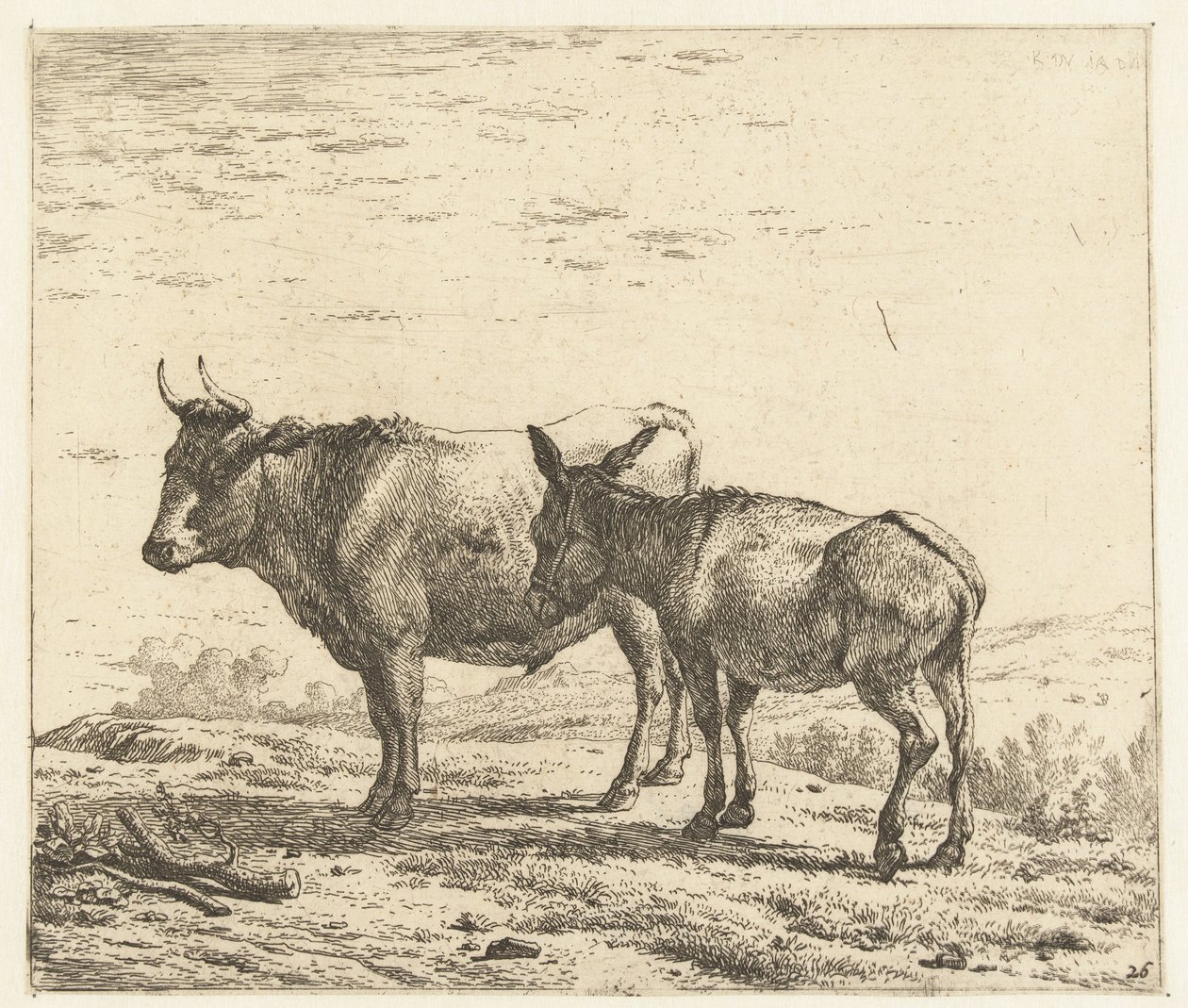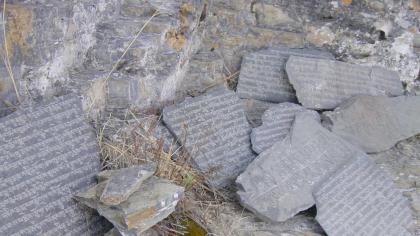June 18, 2024|י"ב סיון ה' אלפים תשפ"ד Bamidbar 5784 - Put the Big Rocks in First
Print ArticleAs Parshas Bamidbar begins, we are introduced to an ELABORATE description of how the Jewish People CAMPED in the desert:
(ב) אִישׁ עַל דִּגְלוֹ בְאֹתֹת לְבֵית אֲבֹתָם יַחֲנוּ בְּנֵי יִשְׂרָאֵל מִנֶּגֶד סָבִיב לְאֹהֶל מוֹעֵד יַחֲנוּ:
Each person camped by his flag, according to his family, all surrounding the Mishkan.
The Torah then spends over 30 more psukim describing the encampment of the Jewish People, who was where, who was next to whom.
And this elaborate detail continues later on at the END of the parsha, as we are told EXACTLY how the Mishkan would be taken down when it was time to travel, who would take it down, and who carried the different vessels.
And Rav Aharon Kotler, the founding Rosh Yeshiva of the Lakewood Yeshiva, asks a simple question: WHY ALL THE DETAIL?
HKBH, as we note all the time, is efficient and economical with His words. Why does He choose to share SO MUCH INFORMATION about the FORMATIONS of how Bnei Yisrael would travel and camp in the desert?
Rav Aharon answers that all of these details come to highlight the importance of SEDER, ORDERLINESS. As he writes:
ללמד לדורות כי כל ענייני קדושה ועבודה דורשים סדר
To Teach all future generations, that success in areas of spirituality and our service of Hashem REQUIRE ORDER. [And, he adds, then when there ISN’T ORDER, there is chaos and nothing can be accomplished.]
And he points out that this wasn’t only true in the desert and in the mishkan, it’s also true in the way HKBH created the world, and created what we call “NATURE”
The pasuk says in Yeshayahu Chapter 45:
(ז) יוֹצֵר אוֹר וּבוֹרֵא חֹשֶׁךְ עֹשֶׂה שָׁלוֹם ]וּבוֹרֵא רָע[ אֲנִי יְקֹוָק עֹשֶׂה כָל אֵלֶּה: ס
Hashem created light and darkness, He created PEACE…
What does that mean that Hashem made light, darkness, and peace?
Explains Rav Aharon that in the creation of the world HKBH created an astoundingly PRECISE SYSTEM, where everything is placed EXACTLY WHERE IT NEEDS TO BE.
The sun, moon, and stars, are the PRECISE distance from the Earth. If the sun was only a little bit closer the Earth would be incinerated, and a little further away, it would freeze.
And this is true even in the ECOSYSTEMS that Hashem created. Add or remove one species and you cause total chaos amongst every other species in that ecosystem.
And even in upper worlds, in a way we can’t really understand, the pasuk calls HKBH the “OSE SHALOM BIMROMAV”, the One who creates peace up in Shamayim. Why? Because each angel has its role to play and doesn’t impinge on the other.
SEDER, ORDER, provides peace and harmony that allows the world to function as it should, and it allows Am Yisrael to function harmoniously, creating a space for Kedusha to permeate the world.
But the power of Seder is not only relevant and meaningful in the desert or in creation. It can also have a powerful impact in our lives as Ovdei Hashem each and every day.
Rav Shlomo Wolbe zt”l, known as the Mashgiach of Yerushalayim until his passing in 2005, writes in his sefer ‘Alei Shur’ that Seder, order, is not only important to avoid chaos. Rather, when we have order, when we have a PLAN, that plan is an EXPRESSION OF OUR PRIORITIES.
The gemara in Shabbos 31a tells us that when a person comes to Shamayim at the end of his life, he will not be asked “ASAKTA B’TORAH” did you involve yourself in learning, did you SPEND TIME learning?” Rather, the language used is “KAVATA ITIM L’TORAH?” Did you make a SET TIME for learning?
What Chazal are pointing out is that the FIRST STEP to success in ANY spiritual endeavor, and I would argue, ANY ENDEAVOR AT ALL, is to first ask ourselves: WHAT DO I WANT? WHAT DO I WANT TO ACCOMPLISH IN MY LIFE? And once I have the answer to THAT QUESTION, then I can build my schedule and create my calendar, SETTING TIMES to make it happen.
In his award-winning book, The 7 Habits of Highly Effective People, Stephen Covey tells the following story:
An expert on the subject of time management was lecturing to a group of business school students, and to drive home a point he used an illustration:
Standing in front of a classroom filled with self-motivated over-achievers, he pulled out a one-gallon, wide-mouthed Mason jar and set it on a table. Then he produced SIX fist-sized rocks and carefully placed them, one at a time, into the jar.
When the jar was filled to the top and no more rocks would fit, he asked, "Is this jar full?"
Everyone in the class said, "Yes."
He said, "Really?"
He then reached under the table and pulled out a sack of gravel. He slowly began dumping the gravel in, pausing to shake the jar as he did so the gravel could work itself down into the spaces between the big rocks. Then he smiled and asked the group once more, "Is the jar full?"
Some of the class started to catch on. "Probably not," one of them called out.
"Good!" he replied. Next, he reached under the table and brought out a bag of sand. He started shaking the sand in, and it sifted down into all the spaces left between the rocks and the gravel. Once more he asked the question, "Now is the jar full?"
"No!" the class shouted.
“Excellent!" he said, and finally he grabbed the pitcher of drinking water off the desk and began to pour it in, until the jar was filled to the brim.
Then he looked up at the class and asked, "What is the point of this illustration?"
One eager student raised his hand and said, "The point is, no matter how full your schedule is, if you try really hard, you can always fit some more things into it!"
WRONG, the speaker replied. The truth this little Mason jar illustration teaches us is simple but powerful:
If you don't put the Big Rocks in first, you'll never get them in at all!
This story relates to one of Covey’s main principles in his book, that we must always PUT FIRST THINGS FIRST: If there are things in our life that we TRULY BELIEVE are our priority – the BIG ROCKS – THEN WE MUST SCHEDULE THEM INTO OUR LIVES BEFORE ANYTHING ELSE. Because if we don’t, then instead, all the urgent but not-so-important things, the things that grab our attention each day but AREN’T REALLY PRIORITIES, the sand and gravel of life, will fill up that jar, leaving no room for the BIG ROCKS.
This, says Rav Wolbe, is why Chazal say we won’t be asked “ASAKTA B’TORAH?” We will be asked “KAVATA ITIM L’TORAH”. To be KOVEIA, means to SCHEDULE something, to give it a specific time and place. What HKBH is asking us is “did you PUT FIRST THINGS FIRST!?”
Because if we can put the BIG ROCKS IN FIRST, if we can be confident that we have created the correct SEDER for our lives, then everything else will follow.




